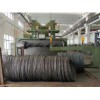As an exporter of goods or services you will need to be aware of and consider insuring against the risks of:
loss of or damage to goods in transit
non-payment for your goods or services
the cost of returning to your premises any goods that a buyer abroad refuses to accept
political or economic instability in the buyer's country
a new customer's credit worthiness
currency fluctuations
a fault that causes an end-customer to sue
If you are an importer, you may need to take into account:
possible loss of or damage to goods in transit
supplier problems, including failure to supply
transport delays and potential hold-ups at ports
the risk of performance or health and safety problems
import duties
storage of goods in bonded warehouses
currency fluctuations
The responsibility for organising insurance can be shared between the importer and exporter, or be taken on by just one of them. When you agree the terms of a contract, it is advisable to use one of 11 International Commercial Terms (Incoterms 2010) - eg Free on Board or Cost Insurance Freight.
Incoterms clearly clarify who has responsibility for freight, insurance and other costs. They also determine when ownership of the goods passes from buyer to seller.
Foreign currency and exchange risks
When you trade internationally, you should also take steps to protect your business against changes in the exchange rate. You will also need to consider when and how best to make or receive payments in currencies other than sterling. For more information see our guide on foreign currency and exchange risks.
Loss or damage of goods
The goods you export or import must have insurance cover from the beginning of their journey until their arrival with either yourself or the buyer. In some cases you will absorb the cost of cover, in others the cost is passed on to the buyer.
See the page in this guide on insuring goods in transit.
Product faults
In exceptional circumstances, a fault with the product supplied may result in an end user taking legal action against your business. Depending on the nature of your product or service, you may need to take out insurance to cover this risk. Search for an insurance broker on the British Insurance Brokers Association (BIBA) website (link is external).
See the page in this guide on product liability insurance.
Non-payment
You might not be paid in full for the goods or services that you export because:
your customer can't or won't pay
war or a natural disaster prevents your goods from reaching the customer, or you from completing your contract
political reasons prevent you from completing your contract, such as an export licence ban in the UK, or import restrictions or a change in the law in the buyer's country
currency problems prevent your buyer from getting the cash they need to pay you
See the page in this guide on insuring against non-payment.
The Authorised Economic Operator (AEO) certification scheme is aimed at reducing security risks in your supply chain. You can read about AEO in our guide on Authorised Economic Operators.






